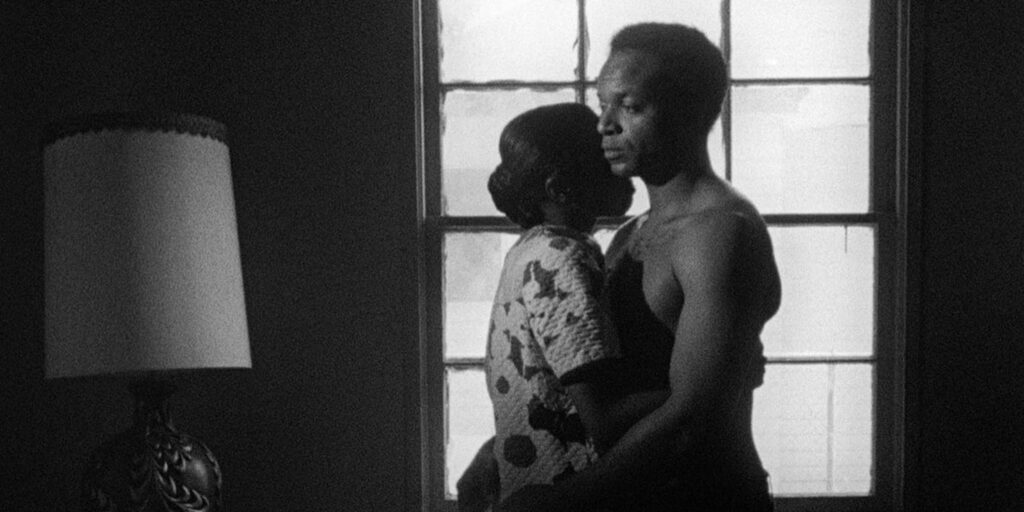Although they come from the same revolutionary generation of New Hollywood filmmakers, it’s not often that you see Steven Spielberg and Martin Scorsese share billing. For more than four decades, American cinema has been all about the Spielberg and George Lucas collaborations or the Scorsese and Paul Schrader team-ups — rarely a Spielberg-Scorsese pairing. Their joint producer credits on Bradley Cooper’s Maestro show that, in their late careers, their respective artistic sensibilities have found more common ground than might be suggested by the prior 40 or 50 years. Passed down from Marty to Steve to Bradley, Maestro delivers the best of all three directors wrapped in an airtight package.
It starts at the end. Composer Leonard Bernstein (Bradley Cooper), time-worn, gravel-voiced, and gray, twinkles away absent-mindedly on the piano keys. His thoughts, he informs an off-camera interviewer, are with Felicia (Carey Mulligan). That would be Felicia Montealegre: wife, actress, performer, ghost. Things are bleak in Berinstein’s present, and the past is so much more hopeful. Suddenly, Bernstein is 25 again. Cutting from full color to black-and-white, viewers are transported back to Manhattan, 1943, when “Lenny” was just an assistant conductor at the New York Philharmonic.
It’s in this time and place that he gets the call of a lifetime: The evening’s conductor is sick, and they need Bernstein to fill in. Like a scene from a musical, the camera swoops and dives as Lenny prepares for his triumphant debut. It goes as spectacularly as anyone who knows the name “Leonard Bernstein” would expect. Maestro carries on like this for the next 45 years of its subject’s life, hopping from one color palette and shooting style to the next as it charts the course of his relationship with Felicia, as well as the occasional tryst, such as one with musician David Oppenheim (Matt Bomer). Come what may — successes, vices, children, scandals, illness — Lenny and Felicia’s love resolutely weathers the storm.
Following Cooper’s success as both an actor and director with A Star Is Born (2018), Maestro is a fitting sophomore directorial effort. It’s hard to say if he’s ever been better than he is here, but there’s no doubt he rises above a growing throng of Hollywood types attempting to pull double (or, in Cooper’s case as actor-writer-director, triple) duty. If it weren’t certain after his debut, there’s no brushing it off here. One could count on two hands the number of under-50 American directors helming works that compare in quality and merit to that of the over-50 crowd, and Cooper is unquestionably on that list.
That said, it’s actually Mulligan who turns in the film’s best performance. Through all the marital strife, the difficult parenting, and the eventual sickness that sets in, Mulligan’s Felicia stands tall and mighty. Awards recognition for Promising Young Woman (2020) aside, it’s been a decent chunk of time since audiences have seen Mulligan get a role with serious meat on its bones — at least since Wildlife (2018), but maybe since Inside Llewyn Davis (2013) before that — which makes Maestro the sort of long-overdue gig that the actress deserves. Her chemistry with Cooper is palpable from the first scene the two share, and it only grows stronger, through the very last shot of the film.
For the skeptical or the otherwise unconvinced, it helps to think of Maestro as an acolyte of the biographical features of Spielberg and Scorsese. All those sweeping camera movements, those carefully choreographed compositions, and even the style of performances on display: They’re all straight out of Steven and Martin’s playbooks. It’s clear to see why the two were attached to the project at some point or another, and it’s just as apparent why they remained a part of the production under Cooper. He’s crafted an Old and New Hollywood throwback that manages to remain considerate and respectful of its subject without donning hagiographic rose-colored glasses about the past and its inhabitants. Although it risks being overlooked in an especially crowded field this month, Maestro nevertheless strengthens Cooper’s status as one of the most talented in his class.
Maestro is now playing in select theaters and will be available to stream on Netflix on Wednesday, Dec. 20.




